
KEYS WEEK 2023: The grand piano is probably one of the most coveted instruments out there, but also one of the least owned, purely down to the practicalities of having one. For a start you need space – lots of it – and a matching room, one that helps complement the sound of the instrument. Then you need the cash – these things don't come cheap, with some of the most expensive grands costing well into six figures. And then you need to be able to play it – using a grand to play 'Chopsticks' does rather feel like driving a Ferrari to the shops to buy a pint of milk. (We know – we've done both.)
However, software recreations of grand pianos have the answers to all of these practical issues. They take up no room like an acoustic piano – well, maybe a lot of Gigabytes on your hard drive, but you know what we mean – they cost a fraction of the real thing, and your playing is less of an issue when you're using a laptop and DAW to compose with them.
There are many (many) software grand pianos out there. This article explores the best individual or specific grand piano titles. There are other, more general, keyboard collections and piano VSTs out there that cover more varied keys requirements – here's looking at you Addictive Keys, Keyscape and Pianoteq. These are excellent, but here we're focussing on the beauty, power and magnificence of the grand, and the grand only.
It is, if you like, the grandest of grand tours. So let's depart…
Synthogy Ivory II Studio Grands
As we hint at above, owning a grand demands a great space to put it in, but Synthogy has you covered with this title as it has two of the best grand pianos recorded in two of the best studios.
You get a Steinway B Grand Piano located in Power Station New England in Waterford, Connecticut, and a Bösendorfer 225 Grand Piano from Firehouse Recording Studios in Pasadena, California.
You'll need a sizeable 112GB to install the two pianos and you might be slightly taken aback by the dated interface but, fear not, these are two of the best sounding grand pianos out there.
The Ivory II interface, while not the most contemporary in design, gives plenty of sound-shaping control. You get everything from editable resonance and lid position to key and pedal noise, dynamic range and stereo width.
EQ, chorus and reverb are on tap in the Effects page, while the Session page grants access to a similarly comprehensive range of performance-related parameters, including pitching, velocity response and the aforementioned Half Pedalling controls.
Both pianos sound absolutely magnificent, and contrast well with each other – the raw Bösendorfer being the weightier of the two, the Steinway having the brighter sound.
Ivory II costs $349 and there's more information over at Synthogy.
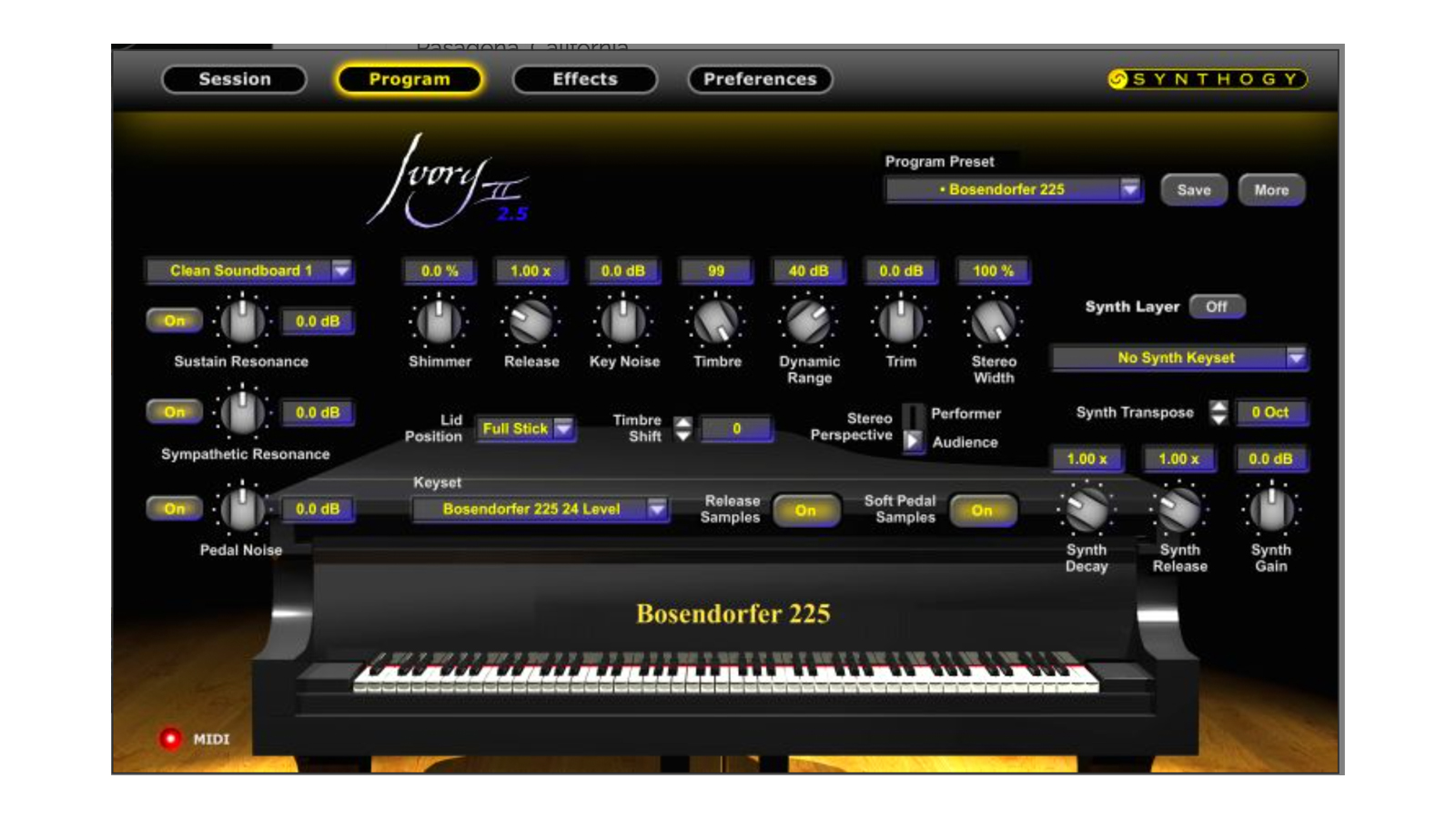
Spitfire Audio Hans Zimmer Grand Piano
Having scored some of the finest movies in recent years, recording every instrument along the way, there's very little that Hans Zimmer doesn't know about a great grand piano sound. For this title he's teamed up with orchestral library specialist Spitfire Audio to come up with one of the best piano instruments out there.
You only get one piano, but it's the the in-house Steinway Model D grand piano at the Lyndhurst Hall at AIR Studios – one that has inspired Zimmer and countless others, not to mention having appeared on many a classic recording.
You'll need a whopping 212GB – what was that we said about not needing much space? – but in that there are some 88,352 samples delivering every type of sound the piano has pretty much ever made.
There are folders containing all of them – Warm And Rounded, or Low And Weighted, for example. You also get microphone positions with an amazing 60 different ones employed during the recording. And of course, the further you move out, the more you get of the wonderful room sound in which the piano was recorded.
The detail here is incredible – the samples capturing every nuance of the piano – and the amazingly balanced sound is second to none. While expensive compared to other options here, you won't find a much more detailed grand piano, without spending well into six figures on the real thing.
Hans Zimmer Grand Piano costs $399/£349 and is available from Spitfire Audio.
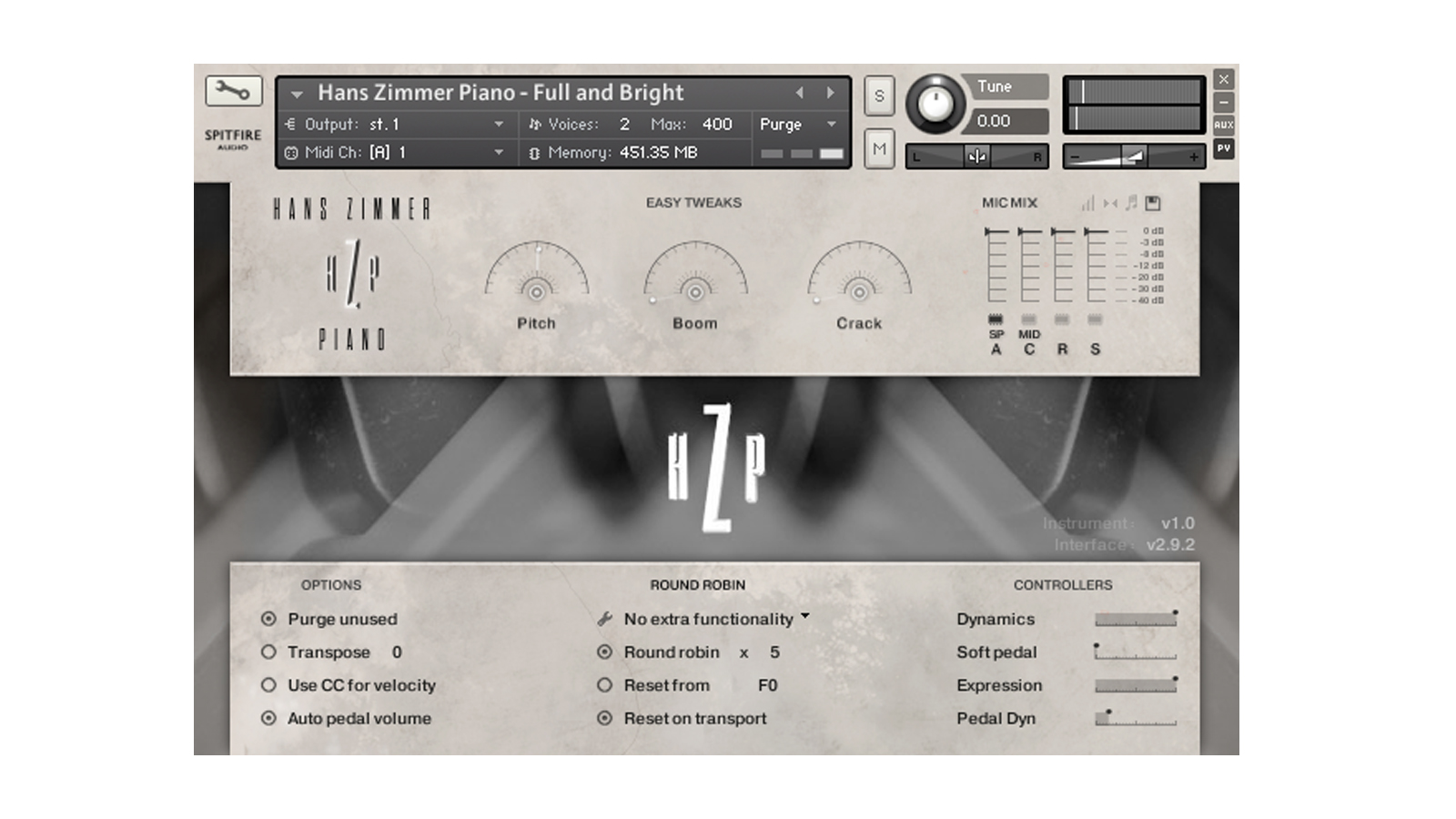
Garritan Abbey Road Studios CFX Concert Grand
From the Steinway at Air Studios above, we take a short trip to Abbey Road Studios and its Yamaha CFX Concert Grand Piano. Garritan Abbey Road Studios CFX Concert Grand is another single instrument library and large hard drive requirement (133GB), but, again, the detail is phenomenal.
The CFX is recorded as three setups: Classic has close, mid and main mics for "the natural tonal character, clarity and nuance"; Contemporary has close and ambient for "bright and hard with lots of attack"; while Player has close and player mic set-ups for the "experience of playing the CFX, from the piano bench".
There are over 30 presets covering all three set-ups and you can make adjustments including Lid Position, Sympathetic and Sustain Resonance, Pedal Noise, mic levels, stereo width and more. Onboard effects cover EQ, reverb and saturation.
Like many here, the plugin is not new – software grand pianos, once sampled well, could be with us for decades – but the interface, compared to others, still looks relatively fresh. And what we're really after is most definitely present and correct, and that is a simply stunning grand piano.
CFX Concert Grand is £199.95 and available from Garritan.
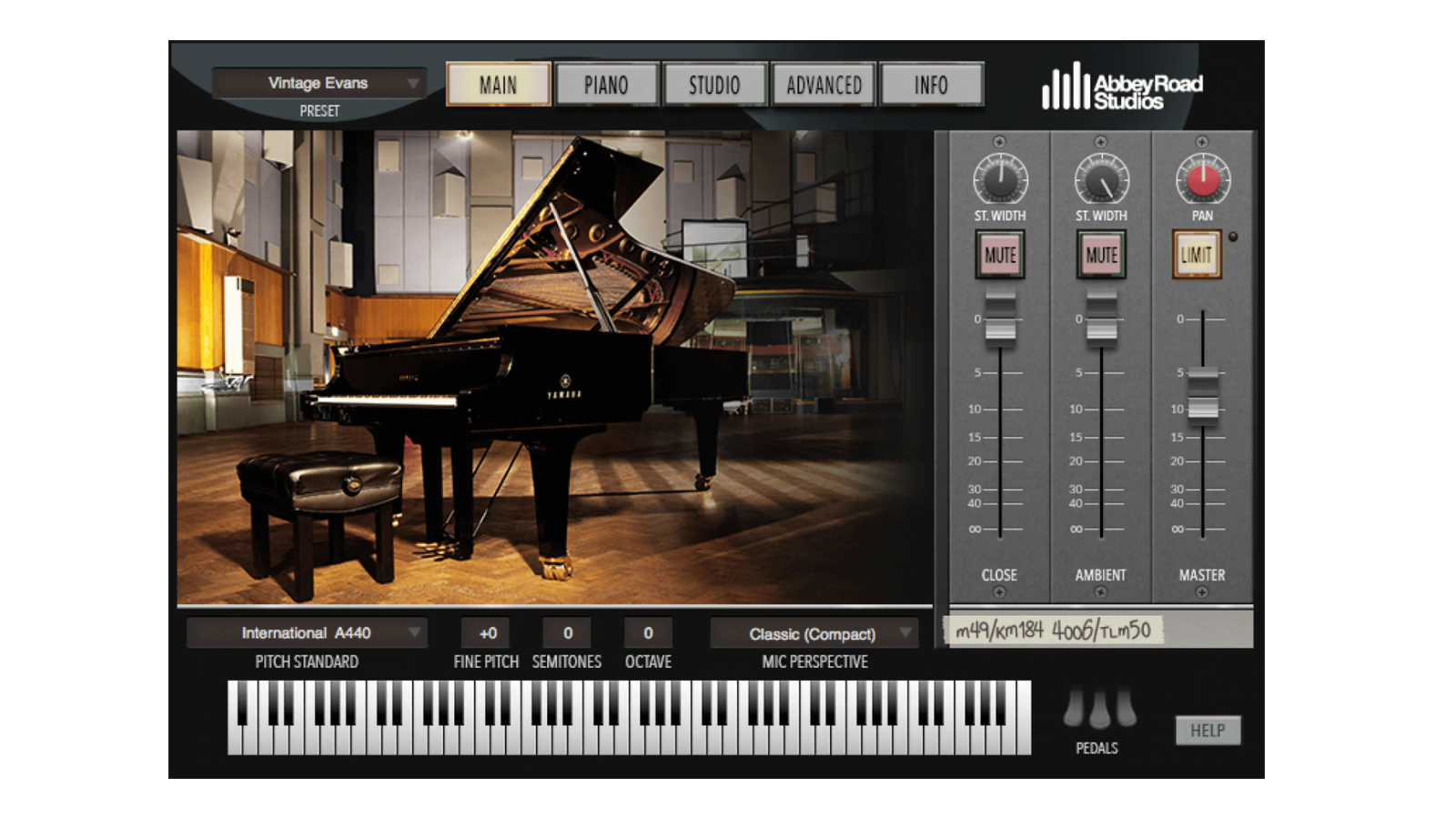
e-instruments Session Keys Grand S and Grand Y
We've gone for two grand piano options here from e-instruments, available individually for around £99/€99/$99 each.
They are the Grand Y (Yamaha CFIIIS Concert Grand) and Grand S (Steinway D Concert Grand). The Steinway delivers the more lively sound of the two while the Yamaha is warmer, but both sound magnificent.
Each can be switched between 'Concert' and 'Studio' mode, the latter recorded with the lid removed and the mics closer for a drier, more contemporary tone.
A useful collection of effects has been included, and the superb Smart Chord and Animator systems enable automatic chord generation combined with configurable playback of a sizeable (but preset-only) library of performance-controllable phrases.
These are excellent instruments at a decent price. If you can track it down, you might still be able to get the Grand Bundle which includes both for just £159/€159/$159.
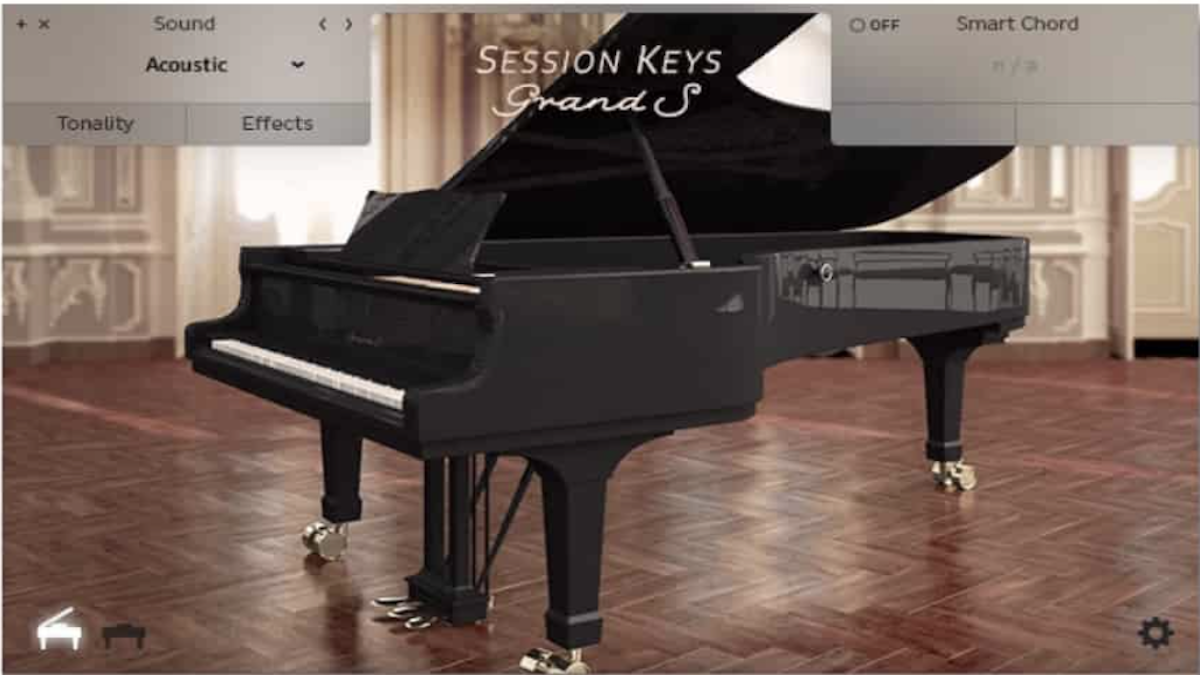
Native Instruments Alicia's Keys
For NI's Kontakt piano instruments you can pick from many titles including The Giant, The Maverick and The Gentleman, but we've gone for arguably a more bespoke choice with Alicia’s Keys.
Like others, it has been around for a while – and if nothing else, we've learned you can't keep a good piano instrument down – but that is testament to how good this instrument was on release. Developed in collaboration with Alicia Keys and her engineer Ann Mincieli (and with Thomas Skarbye programming) it is an instrument based on her own Yamaha C3 Neo, one she has used for most of her work in the studio and live.
There is just one piano instrument, but you also get six tabbed pages with features ranging from algorithmic and convolution reverbs to attack/release behaviour and sympathetic resonance settings. One of the nicest features is a simple fader control for mechanical noise, including pedal, key and even microphone hiss.
The pink interface may not appeal to everyone, and the sound lacks some of the natural room character associated with classical piano instruments; however, that clearly wasn’t the remit. Alicia’s Keys delivers an excellently ‘produced’ piano sound, with plenty of tone and behaviour-shaping flexibility, all from a fairly compact 7GB drive footprint. It costs £89 and you can get more info from Native Instruments.
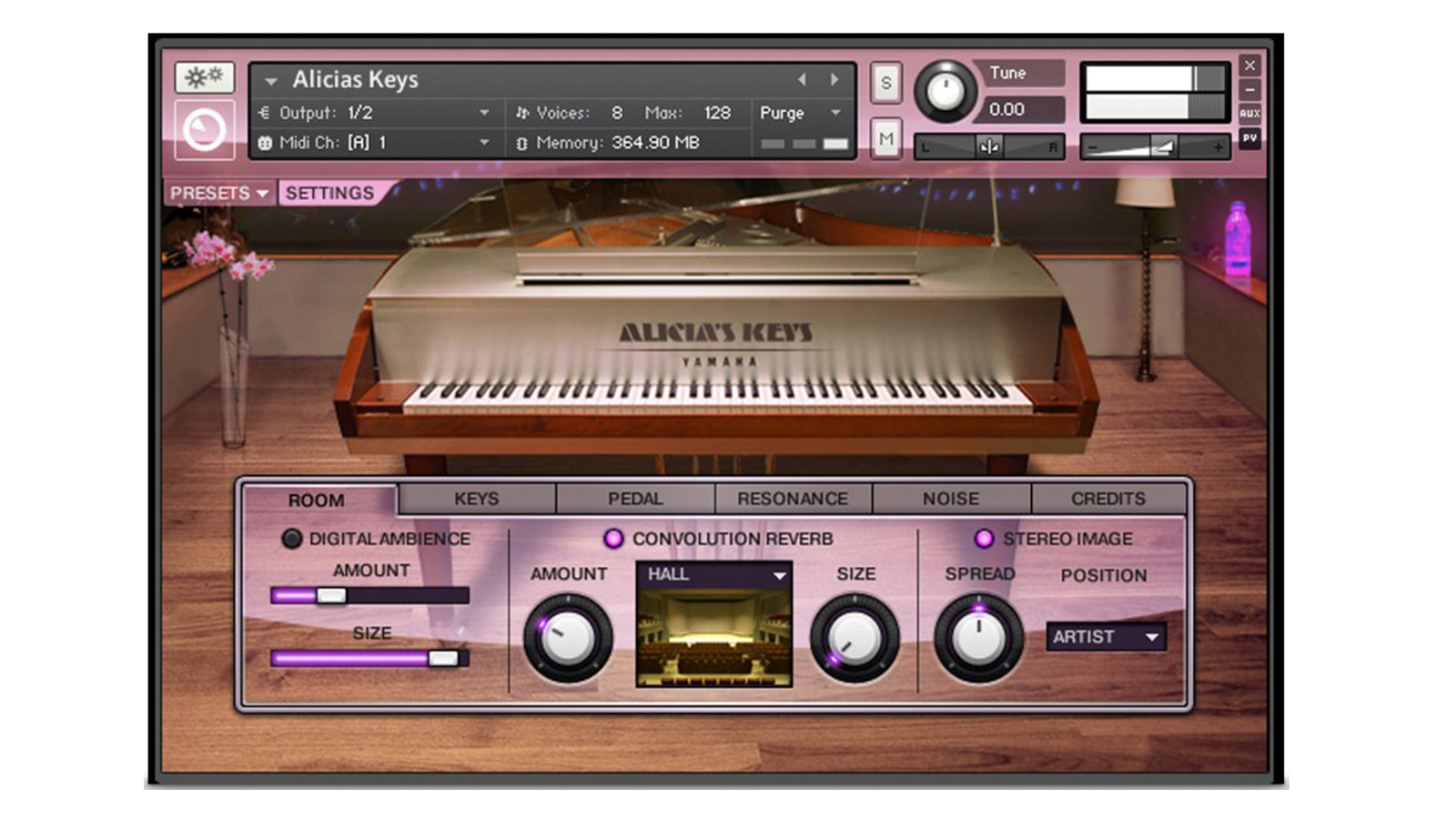
VI Labs Ravenscroft 275
Ravenscroft Pianos are bespoke grands built to order and originally designed by jazz musician Bob Ravenscroft and piano builder Michael Spreeman. Each one takes 1,000 hours to build so we already know that this software emulation arrives with at least one advantage – at just 6GB in size it's not going to take 1,000 hours to arrive unless your internet is from 1972.
And with a not inconsiderable 17,000 samples it could sound as good as an original Ravenscroft. You get four mic positions and 19 layers and the results really do reflect both the power and nuanced sound of the original – these pianos are designed to both stand out over a full orchestra and also handle more subtle passages so have a huge dynamic range.
So if you want something a little different from your average Steinways and Yamahas – which are, of course, in no way 'average' but you get our drift – then a Ravenscroft could be your grand design.
At $199 it's neither the cheapest nor most expensive on offer here, but this middling outlay will get you a slice of a very niche piano. More info from VI Labs.
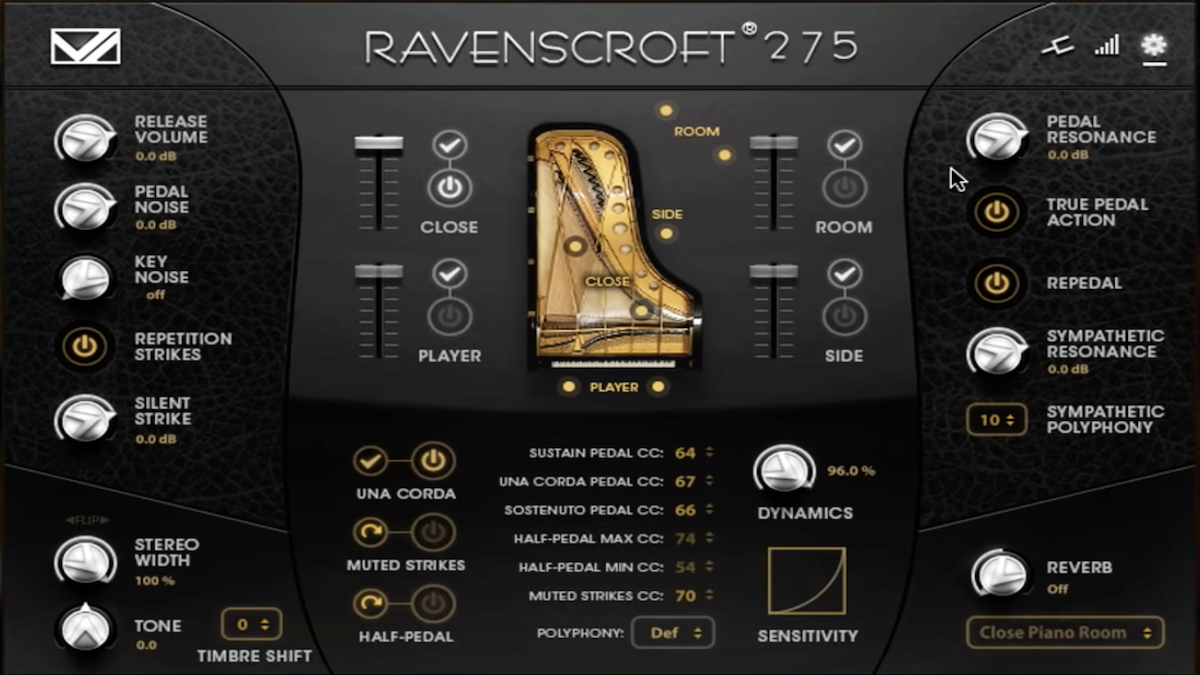
Looking for more great keyboard gear and technique? Get all our reviews, news, features, tutorials, tips and more at our Keys Week 2023 hub page.







